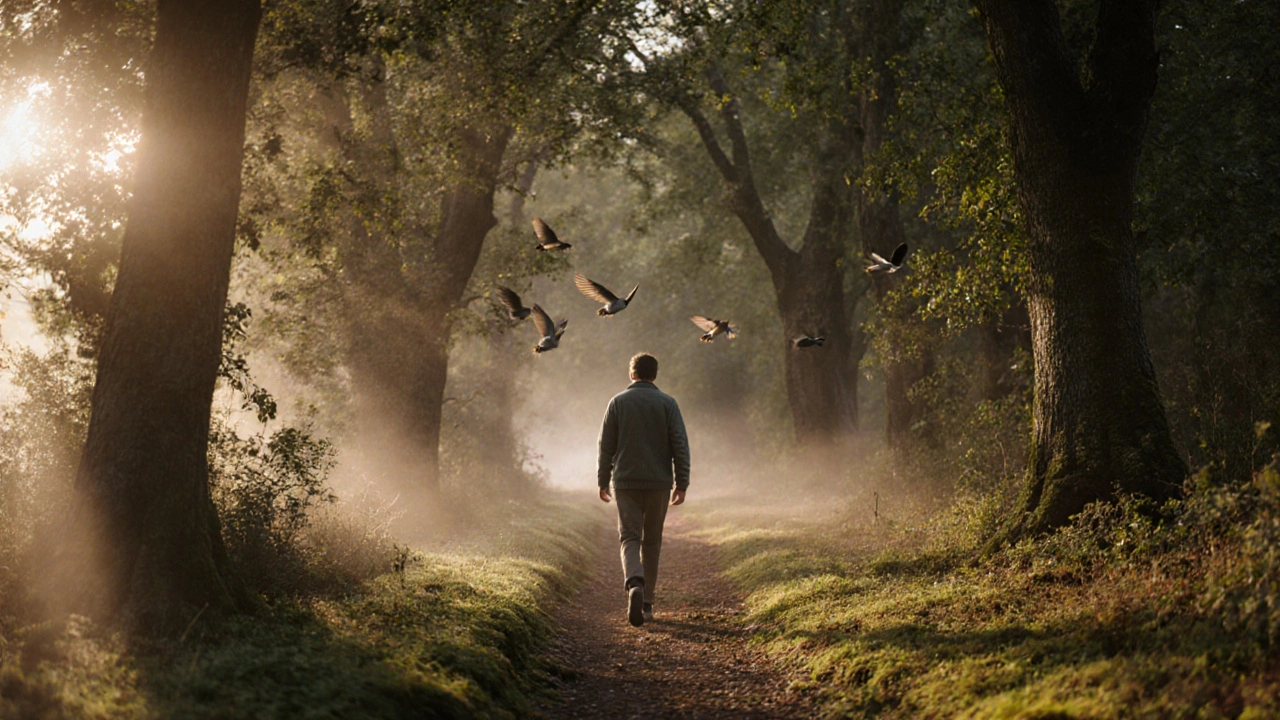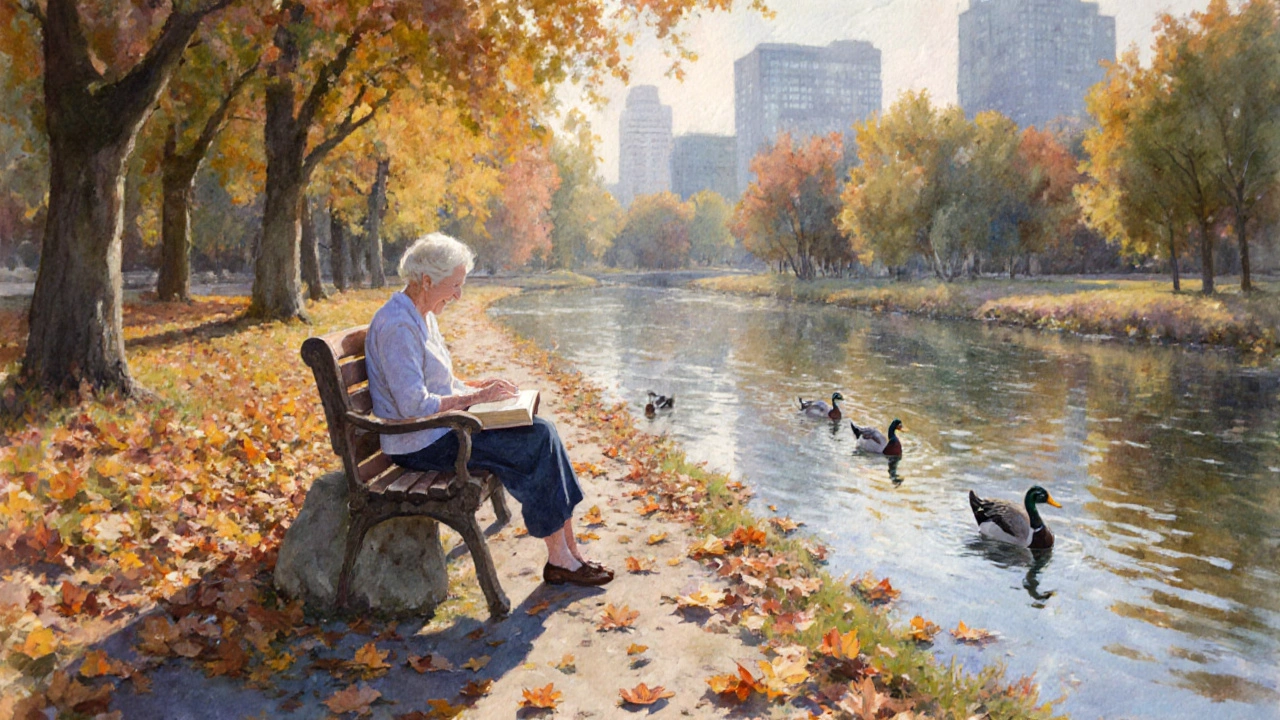Why Outdoor Activities Are Fun: The Science and Joy of Being Outside
 Nov, 9 2025
Nov, 9 2025
Ever notice how even the grumpiest person lights up after a walk in the park or a weekend hike? There’s something deeper than just fresh air going on when we step outside. Outdoor activities aren’t just a way to kill time-they’re a reset button for your brain, body, and mood. And it’s not just because the weather’s nice. Science, biology, and plain old human history all point to one thing: being outside is wired into how we’re meant to feel good.
Your Brain on Nature
When you’re walking through a forest, sitting by a river, or even just gardening in your backyard, your brain switches modes. It stops chasing deadlines, scrolling feeds, and replaying stressful conversations. Instead, it enters what psychologists call soft fascination. That’s when your attention is gently held by the rustle of leaves, the flight of birds, or the way sunlight dances on water. No effort needed. No pressure to perform.
A 2019 study from Stanford University found that people who walked for 90 minutes in a natural setting showed reduced activity in the part of the brain linked to rumination-the endless loop of negative thoughts that fuels anxiety and depression. The same group showed no change after walking in a busy city. Nature doesn’t just distract you from stress. It actively calms the mental noise.
Why Movement Feels Better Outside
Running on a treadmill feels like a chore. Running along a trail? That’s an adventure. Why? Because outdoor movement is unpredictable. You dodge roots, climb small hills, adjust your pace to the terrain. Your body isn’t just working-it’s engaging. Your balance, coordination, and reflexes are all in play.
And it’s not just about exercise. Being outside means sunlight. Sunlight triggers vitamin D production, which your body uses to regulate mood, sleep, and immune function. Low vitamin D levels are linked to fatigue and low mood. A 2023 meta-analysis of over 100,000 people showed that those who spent at least 120 minutes a week outdoors reported significantly higher life satisfaction than those who didn’t.
Social Connection Without the Pressure
Outdoor activities naturally bring people together-but without the awkwardness of a party or the pressure of small talk. You’re not forced to be funny or interesting. You’re just walking, paddling, or climbing side by side. That shared focus-getting to the top of the hill, spotting a rare bird, finding the perfect campsite-creates quiet bonds.
Studies from the University of Michigan show that group outdoor activities boost feelings of trust and belonging more than indoor social events. Why? Because nature removes social hierarchies. No one cares if you’re wearing designer gear or if your car is the newest model. What matters is whether you’ve got enough water, the right shoes, or if you can spot the next turn on the trail.

Childhood Memories and Adult Joy
Think back to your favorite outdoor memory. Was it climbing trees? Building forts? Chasing fireflies? These aren’t just nostalgic moments-they’re the foundation of how we learn joy. Kids who grow up playing outside develop stronger problem-solving skills, better emotional regulation, and higher resilience.
And it’s not just for kids. Adults who reconnect with outdoor play-whether it’s flying kites, skipping stones, or riding bikes without a destination-report feeling more playful, less rigid, and more alive. That’s because outdoor activities tap into a part of us that doesn’t care about productivity. They remind us that fun doesn’t need a goal.
Simple, Free, and Always Available
Unlike a movie ticket, gym membership, or video game console, outdoor fun costs almost nothing. A pair of shoes, a water bottle, and a willingness to step out the door are all you need. Parks, trails, beaches, and even urban green spaces are open to everyone. You don’t need permission. You don’t need to book ahead. You just need to show up.
In Sydney, you can walk from Bondi to Coogee in under two hours and see cliffs, coves, and ocean views without spending a cent. In Melbourne, the Royal Botanic Gardens offer quiet paths and birdwatching spots right in the city. Even a 20-minute lunchtime walk around a local square can reset your afternoon.

It’s Not About Being an Athlete
You don’t need to be fit, fast, or fearless to enjoy the outdoors. Sitting under a tree with a book counts. Watching clouds roll by counts. Feeding ducks at the pond counts. Outdoor activities aren’t about achievement-they’re about presence.
One woman I know in Newtown started just sitting on a bench near the creek after her divorce. She didn’t hike. She didn’t run. She just showed up every day. Within weeks, she said she felt like she was breathing again. That’s the quiet power of being outside. It doesn’t demand anything from you. It just gives back.
What You’re Really Missing
If you’ve been skipping outdoor time, ask yourself: What am I trading for screen time? For another hour of work? For scrolling through endless content? You’re trading sensory richness-the smell of rain on hot pavement, the sound of wind in eucalyptus leaves, the feel of cool grass under bare feet.
Modern life makes us feel like we’re always behind. But outside, time moves differently. The sun doesn’t rush. The tide doesn’t hurry. The seasons don’t care about your to-do list. And that’s the real magic: being outside doesn’t fix your problems. It reminds you that you’re part of something bigger-and that’s enough.